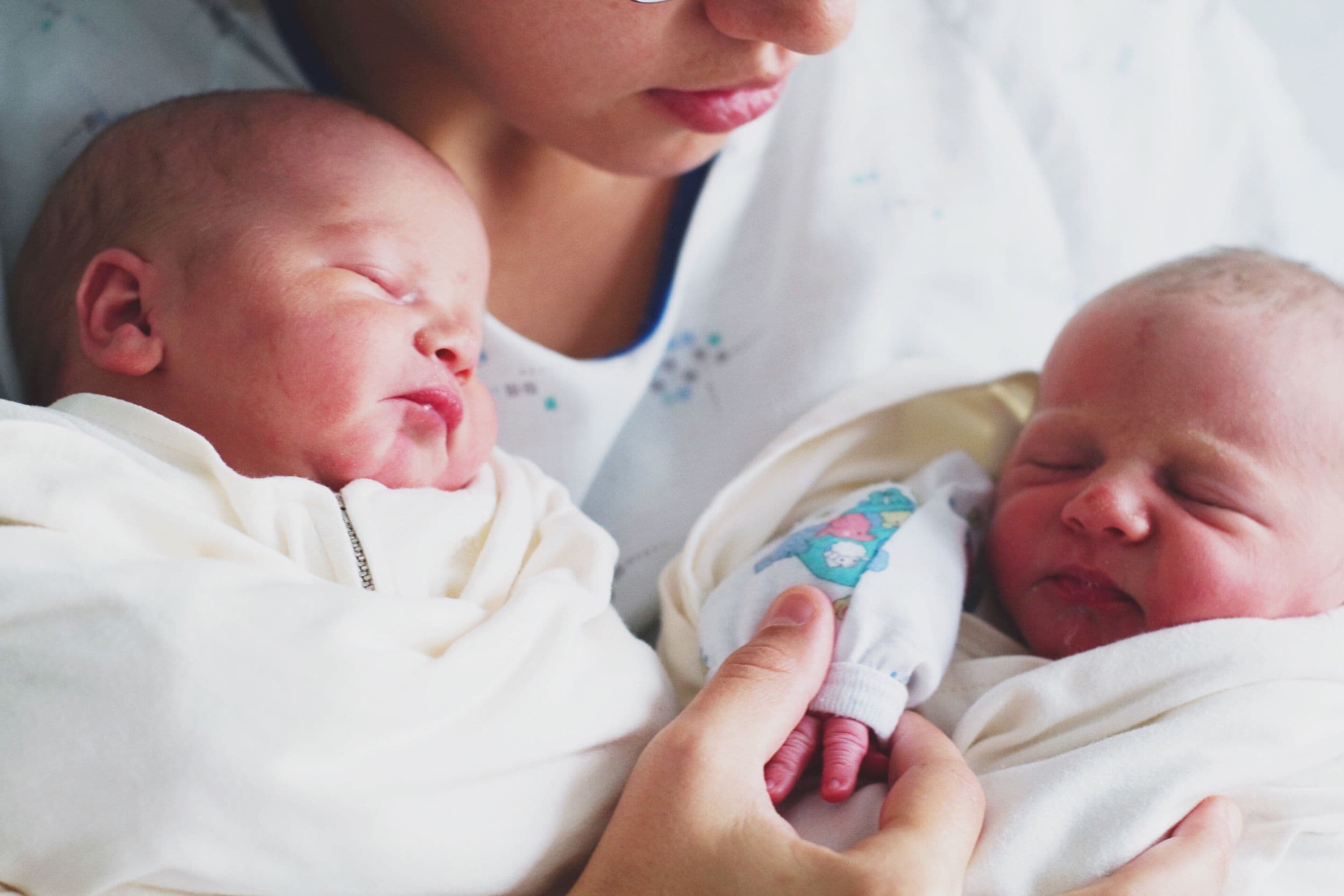Twins: What Are the Odds Having Twins?
Multiples
Obie Editorial Team

Q: My husband and I are both twins. I am an identical twin, and he is a fraternal twin. What are our chances of having twins of our own?
A: Your chance of having twins is less than you might think. There are two different kind of twins:
- Dizygotic or fraternal twins (2 separate eggs and sperms)
- Monozygotic twins (1 egg and sperm which split after fertilization)
Monozygotic twins
The incidence of monozygotic twins is the same all over the world, it's 1 in 250 pregnancies. And not matter if you were a monozygotic twin or not, the incidence is still the same.
Dizygotic twins
The incidence of dizygotic twins in general is 1 in 85 pregnancies, but it also depends on your ethnic background. People from Africa have a higher incidence and Asians have a somewhat lower incidence.
If you yourself were a dizygotic twin then your chance having another set of dixzygotic twins depends mainly on your ethnicity and then it's likely a little higher. For the average person it would increase probably from 1 in 85 to 1 in 50 pregnancies.
here are two different kind of twins:
Dizygotic or fraternal or non-identical twins
(2 separate eggs and sperms)
Monozygotic or maternal or identical twins
(1 egg and sperm which split after fertilization)
Monozygotic twins
Monozygotic twins are also known as identical twins. The incidence of monozygotic twins is the same all over the world, it's 1 in 250 pregnancies. And not matter if you were a monozygotic twin or not, the incidence is still the same.
Dizygotic twins
The incidence of dizygotic twins in general is 1 in 85 pregnancies, but it also depends on your ethnic background. People from Africa have a higher incidence and Asians have a somewhat lower incidence.
If you yourself were a dizygotic twin then your chance having another set of dixzygotic twins depends mainly on your ethnicity and then it's likely a little higher. For the average person it would increase probably from 1 in 85 to 1 in 50 pregnancies.
If you were an identical twins or you previously had identical twins then the risk is still the same, it's 1 in 250.
Your chance of having twins is not increased because you are an identical twin.
Here are the odds of having twins:
- 1 in 85 in general
- 1 in 250 to have identical twins
- 1 in 17 if the mother is a fraternal twin
- 1 in 85 if the mother is an identical twin
- 1 in 10 when you take Clomid
- 1 in 2-3 if you have IVF
- 1 in 90 if you are Caucasian
- 1 in 60 if you are of African descent
- 1 in 150 if you are of Japanese descent
- 1 in 300 if you are of Chinese descent
- 1 in 8,100 to have spontaneous triplets
- 1 in 729,000 to have spontaneous quadruplets
- 3 in 4 to deliver triplets prematurely
- 1 in 2 to deliver twins prematurely
- Under 1 in 50,000 to have conjoined (Siamese) twins
- 1 in 2-3 to have both twins with head down (vertex) at birth







